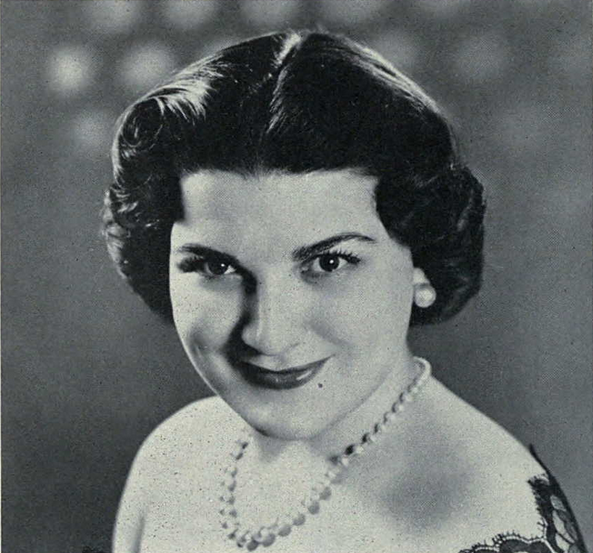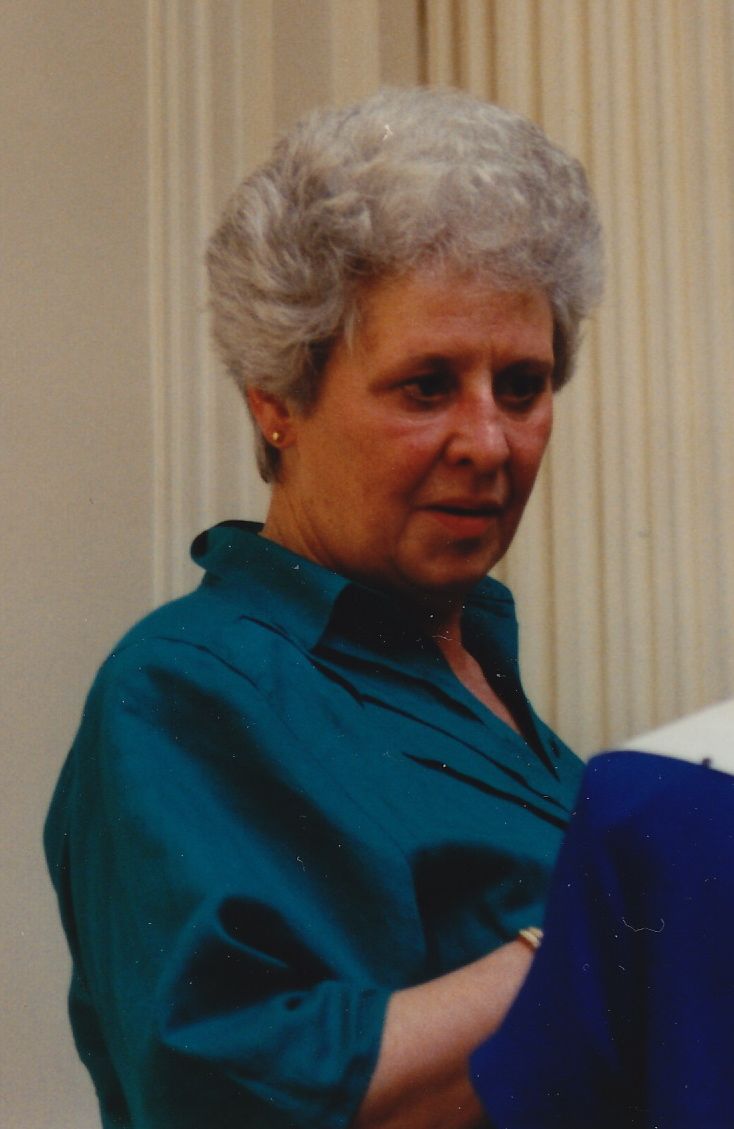|
Karl Terkal
Karl Terkal (7 October 1919 - 12 August 1996) was an Austrian operatic tenor, particularly associated with lyric roles of the German repertory, both opera and operetta. Born in Vienna, Terkal was working as a furniture carpenter in Vienna, while taking voice lessons with Valerie Wilhelm. He later entered the Vienna Music Academy, where he was a pupil of Hermann Gallos. He made his stage debut in Graz, as Don Ottavio, in 1950, and remained there until 1952. He made his debut at the Vienna State Opera in 1951, again as Don Ottavio, under Clemens Krauss, and began a long association with that theatre that would last some thirty years. He also sang frequently at the Vienna Volksoper, where he became a great favorite in operetta. He was also a guest at the Bregenz Festival and Salzburg Festival. He also made appearances in London, Rome, Milan, Naples, Palermo, Lisbon, etc. He excelled in lyric parts in opera by Mozart, Wagner, Strauss, Verdi and Puccini, as well as operett ... [...More Info...] [...Related Items...] OR: [Wikipedia] [Google] [Baidu] |
Tenor
A tenor is a type of classical music, classical male singing human voice, voice whose vocal range lies between the countertenor and baritone voice types. It is the highest male chest voice type. The tenor's vocal range extends up to C5. The low extreme for tenors is widely defined to be B2, though some roles include an A2 (two As below middle C). At the highest extreme, some tenors can sing up to the second F above middle C (F5). The tenor voice type is generally divided into the ''leggero'' tenor, lyric tenor, spinto tenor, dramatic tenor, heldentenor, and tenor buffo or . History The name "tenor" derives from the Latin word ''wikt:teneo#Latin, tenere'', which means "to hold". As Fallows, Jander, Forbes, Steane, Harris and Waldman note in the "Tenor" article at ''Grove Music Online'': In polyphony between about 1250 and 1500, the [tenor was the] structurally fundamental (or 'holding') voice, vocal or instrumental; by the 15th century it came to signify the male voice that ... [...More Info...] [...Related Items...] OR: [Wikipedia] [Google] [Baidu] |
Johann Strauss II
Johann Baptist Strauss II (25 October 1825 – 3 June 1899), also known as Johann Strauss Jr., the Younger or the Son (german: links=no, Sohn), was an Austrian composer of light music, particularly dance music and operettas. He composed over 500 waltzes, polkas, quadrilles, and other types of dance music, as well as several operettas and a ballet. In his lifetime, he was known as "The Waltz King", and was largely responsible for the popularity of the waltz in Vienna during the 19th century. Some of Johann Strauss's most famous works include "The Blue Danube", "Kaiser-Walzer" (Emperor Waltz), "Tales from the Vienna Woods", "Frühlingsstimmen", and the "Tritsch-Tratsch-Polka". Among his operettas, ''Die Fledermaus'' and ''Der Zigeunerbaron'' are the best known. Strauss was the son of Johann Strauss I and his first wife Maria Anna Streim. Two younger brothers, Josef and Eduard Strauss, also became composers of light music, although they were never as well known as their brot ... [...More Info...] [...Related Items...] OR: [Wikipedia] [Google] [Baidu] |
Leonie Rysanek
Leopoldine Rysanek (14 November 1926 – 7 March 1998) was an Austrian dramatic soprano. Life Rysanek was born in Vienna and made her operatic debut in 1949 in Innsbruck. In 1951 the Bayreuth Festival reopened and the new leader Wieland Wagner asked her to sing Sieglinde in '' Die Walküre''. He was convinced that her unique, young and beautiful voice, combined with her rare acting abilities, would create a sensation. She became a star overnight, and the role of Sieglinde followed her for the rest of her career. Her final performance was at the Salzburg Festival in August 1996, as Klytämnestra in ''Elektra'' by Richard Strauss. Her Metropolitan Opera debut came in 1959 as Lady Macbeth in Verdi's ''Macbeth'', replacing Maria Callas who had been "fired" from the production. Over her lengthy career, she sang 299 performances of 24 roles there. She starred in productions of Verdi's '' Nabucco'', in the title role of '' Ariadne auf Naxos'' by Richard Strauss, the Empress in '' ... [...More Info...] [...Related Items...] OR: [Wikipedia] [Google] [Baidu] |
Die Frau Ohne Schatten
' (''The Woman without a Shadow''), Op. 65, is an opera in three acts by Richard Strauss with a libretto by his long-time collaborator, the poet Hugo von Hofmannsthal. It was written between 1911 and either 1915 or 1917. When it premiered at the Vienna State Opera on 10 October 1919, critics and audiences were unenthusiastic. Many cited problems with Hofmannsthal's complicated and heavily symbolic libretto. However, it is now a standard part of the operatic repertoire. Composition history Work on the opera began in 1911. Hofmannsthal's earliest sketches for the libretto are based on a piece by Goethe, ' (1795). Hofmannsthal handles Goethe's material freely, adding the idea of two couples, the emperor and empress who come from another realm, and the dyer and his wife who belong to the ordinary world. Hofmannsthal also drew on portions of ''The Arabian Nights'', ''Grimms' Fairy Tales'', and even quotes Goethe's ''Faust''. The opera is conceived as a fairy tale on the theme of lo ... [...More Info...] [...Related Items...] OR: [Wikipedia] [Google] [Baidu] |
Mario Rossi (conductor)
Mario Rossi (29 March 1902, Bitetto – 29 June 1992, Rome) was an Italian conductor, noted for his solid and meticulous readings of a repertory ranging from Italian classics to Russian moderns such as Prokofiev, to the German operatic classicist Christoph Willibald Gluck. He studied composition in Rome with Respighi and conducting with Giacomo Setaccioli, graduating in 1925, and soon after graduation he took up the post of assistant conductor to Bernardino Molinari. Appointed resident conductor of the Maggio Musicale Fiorentino in Florence (1937–46), he made his debut on the podium there in 1937 with Mascagni's ''Iris''. The following year he led the premiere of Gian Francesco Malipiero's opera ''Antonio e Cleopatra''. He conducted in all the major opera houses of Italy. As well as establishing himself in the standard Italian repertory, he took part in many revivals of ancient works such as Galuppi's ''Il filosofo di campagna'', Monteverdi's ''Il ritorno d'Ulisse in Patr ... [...More Info...] [...Related Items...] OR: [Wikipedia] [Google] [Baidu] |
Teresa Stich-Randall
Teresa Stich-Randall ( Stich; 24 December 1927 17 July 2007) was a European-based American soprano opera singer. [...More Info...] [...Related Items...] OR: [Wikipedia] [Google] [Baidu] |
Anneliese Rothenberger
Anneliese Rothenberger (19 June 191924 May 2010) was a German operatic soprano who had an active international performance career which spanned from 1942 to 1983. She specialized in the lyric coloratura soprano repertoire, and was particularly admired for her interpretations of the works of Wolfgang Amadeus Mozart and Richard Strauss. Life and career Rothenberger was born in Mannheim, Germany. She studied with Erika Müller, and took up her first engagement in Koblenz in 1942. In 1946, Günther Rennert offered her a job at the Hamburg Opera House, where she sang in Rennert's now famous production of Alban Berg's ''Lulu'' twenty years later, a role she would also perform at the Munich Opera Festival, under the direction of Christoph von Dohnányi. 1954 saw her make her debut at the Salzburg Festival, and she appeared in Rolf Liebermann's ''Schule der Frauen'', three years later. From 1954, she became a guest singer at the Vienna State Opera. New York City audiences had their fi ... [...More Info...] [...Related Items...] OR: [Wikipedia] [Google] [Baidu] |
Sena Jurinac
Srebrenka "Sena" Jurinac () (24 October 1921 – 22 November 2011) was a Bosnian-born Austrian operatic soprano. Biography Jurinac was born in Travnik, Bosnia-Herzegovina (then part of the Kingdom of Yugoslavia), the daughter of a Croatian father (a doctor) and a Viennese mother. She studied at the Zagreb Academy of Music, and with Milka Kostrenčić. Her voice was pitched exactly between soprano and mezzo. Her repertoire included Poppea, Elisabetta (''Don Carlos''), Desdemona (''Otello''), Elisabeth (''Tannhäuser''), Ilia, Iphigenia, Jenůfa, Leonora (''La forza del destino''), the Composer (''Ariadne auf Naxos''), Marie (''Wozzeck''), Pamina (''The Magic Flute''), Mimi, Butterfly and Tosca. In many operas, her repertoire included more than one major role: Cherubino and Countess Almaviva, Donna Anna and Donna Elvira, Fiordiligi and Dorabella, Amor and Eurydice, Leonore and Marzelline (''Fidelio''), Marina and Fyodor (''Boris Godunov''); Octavian and the Marschallin. She also ... [...More Info...] [...Related Items...] OR: [Wikipedia] [Google] [Baidu] |
Gräfin Mariza
''Gräfin Mariza'' (''Countess Maritza'') is an operetta in three acts composed by Hungarian composer Emmerich Kálmán, with a German libretto by Julius Brammer and Alfred Grünwald. It premiered in Vienna on 28 February 1924 at the Theater an der Wien. English adaptations As ''Countess Maritza'', it made its New York City debut on 18 September 1926 at the Shubert Theatre, in an adaptation by Harry B. Smith, and with interpolated music by other composers, playing 318 performances, with Yvonne d'Arle in the title role on opening night. The show was staged by J. C. Huffman. As ''Maritza'', it opened in London at the Palace Theatre on 6 July 1938, with Mary Losseff in the title role. A London revival by New Sadler's Wells Opera opened at Sadler's Wells Theatre in February 1983, with a new English book and lyrics by Nigel Douglas, starring Marilyn Hill Smith (Maritza), Ramon Remedios (Tassilo), Laureen Livingstone (Lisa), Lynn Barber (Manja) and Tudor Davies (Zsupan) conducte ... [...More Info...] [...Related Items...] OR: [Wikipedia] [Google] [Baidu] |
Alfred Poell
Alfred Poell (18 March 1900 – 30 January 1968) was an Austrian operatic baritone. Poell was born in Linz, Austria and studied medicine at the University of Innsbruck and obtained his doctorate there. He practised for a time as a neck specialist. He then turned to vocal studies at the Vienna Music Academy with Philip Forsten and Joseph von Manowarda. He made his operatic debut at the Deutsche Oper am Rhein in Düsseldorf in 1929, where he sang for ten years and where he took part in the premiere of Ludwig Maurick's work ''Simplicius Simplicissimus'', on 23 March 1938. He joined the Vienna State Opera in 1940, where he sang until the end of his career. He also became a regular guest at the Salzburg Festival and the Glyndebourne Festival, where he was especially admired for his Mozart singing. He made guest appearances at La Scala in Milan, the Royal Opera House in London. the Palais Garnier in Paris and other major European stages. Besides Mozart roles, he performed in works s ... [...More Info...] [...Related Items...] OR: [Wikipedia] [Google] [Baidu] |
Wilma Lipp
Wilma Lipp (; 26 April 1925 – 26 January 2019) was an Austrian operatic soprano and academic voice teacher. A long-time member of the Vienna State Opera, she was particularly associated with the role of the Queen of the Night in Mozart's ''Die Zauberflöte'', a role she performed internationally more than 400 times. She was awarded the title Kammersängerin at age 28, and was an honorary member of the Vienna State Opera, among other honours. Career Lipp studied in Vienna with Friedel Sindel, Paola Novikova, Anna Bahr-Mildenburg and Alfred Jerger, and also with Toti Dal Monte in Milan. She made her stage debut in Vienna as Rosina in Rossini's ''The Barber of Seville'' in 1943 in an open-air performance, and joined the Vienna State Opera in 1945. She won international attention as the Queen of the Night in Mozart's ''Die Zauberflöte'' in a 1948 performance conducted by Josef Krips. She sang the role then also at La Scala in Milan, at the Paris Opéra, in Hamburg and in Brussels ... [...More Info...] [...Related Items...] OR: [Wikipedia] [Google] [Baidu] |
.jpg)
.jpg)




.jpg)
